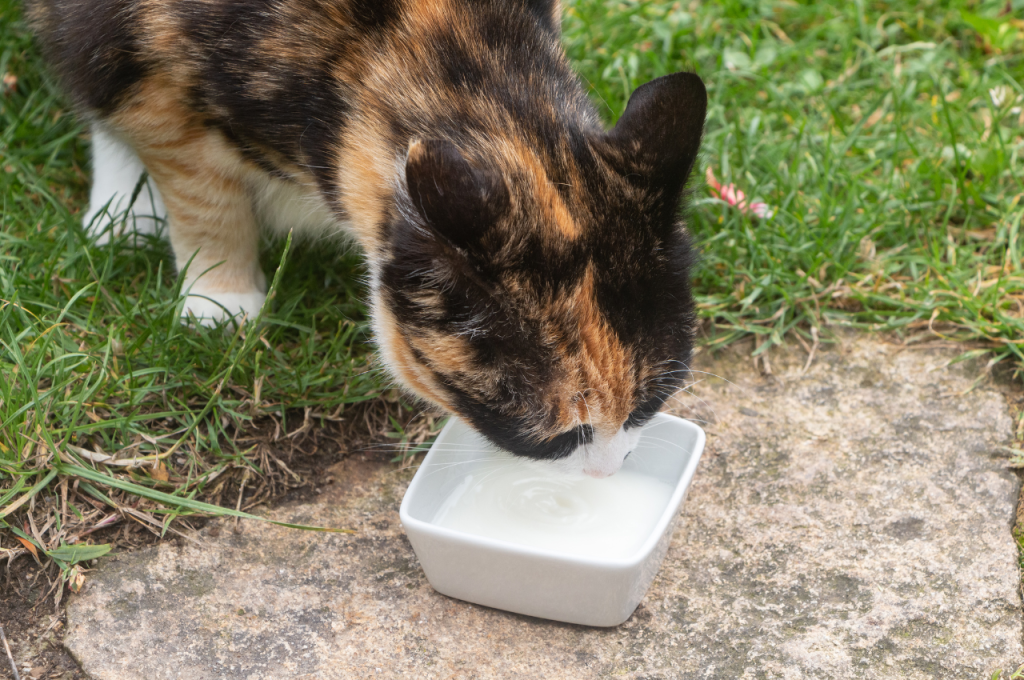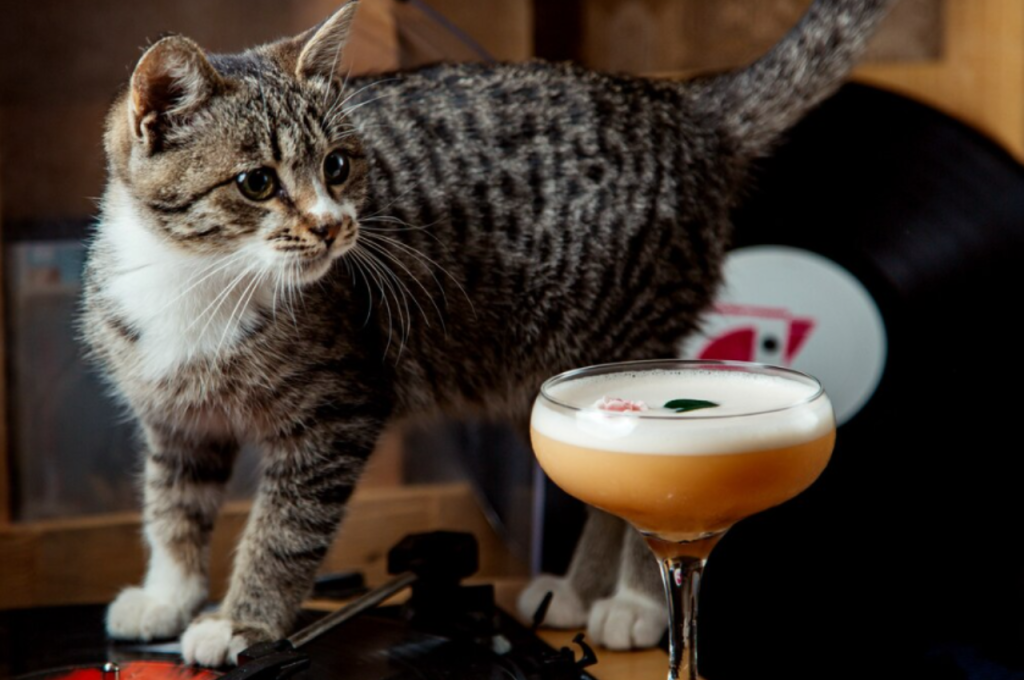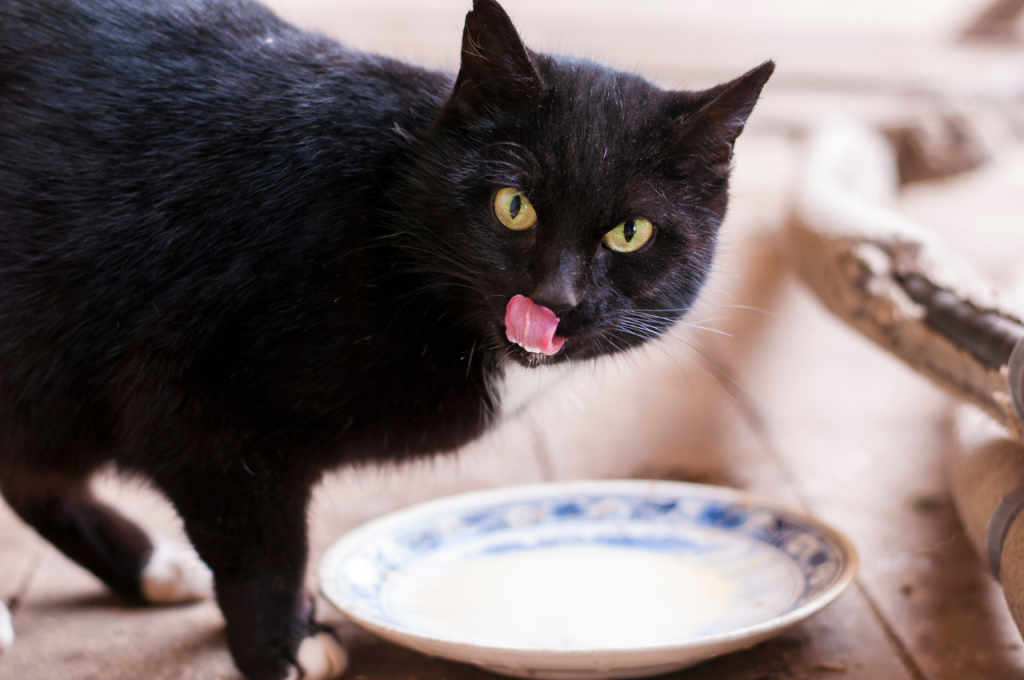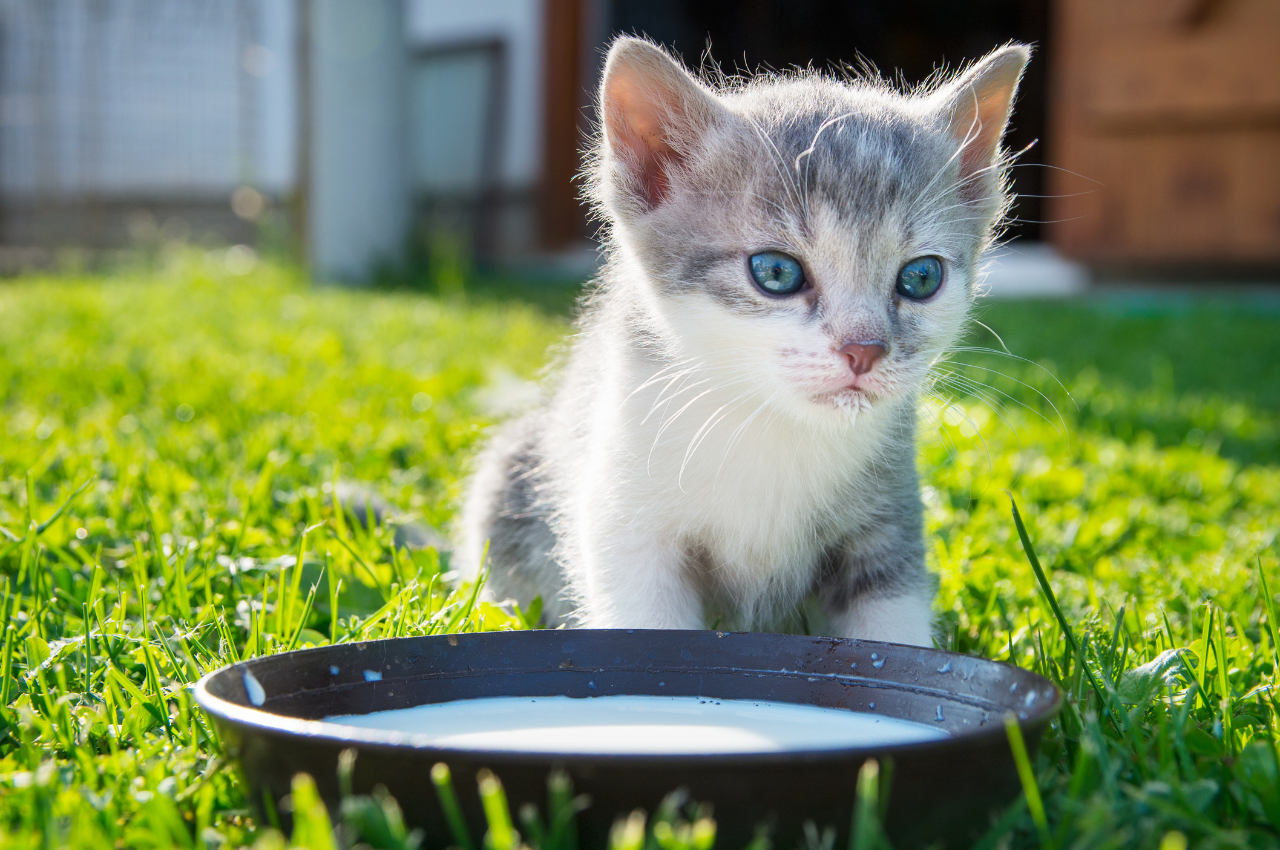Cats can’t drink milk. It can cause digestive issues due to lactose intolerance.
It’s essential to be mindful of what your feline friends consume, as certain foods and beverages can be harmful to their health. While cats are known to be picky eaters, some things are non-negotiable, such as milk.
Contrary to popular belief, cats can’t drink milk as they are lactose intolerant, meaning they lack the enzymes needed to digest dairy products. So, it’s important to steer clear of offering your cat any milk or dairy-based products to avoid causing discomfort or potential digestive problems. Let’s explore what other beverages are off-limits for cats and why it’s crucial to maintain a proper diet for our beloved pets.
The Importance of Hydration for Cats
Hydration is crucial for cats, but there are liquids they can’t consume. Cats should avoid drinking milk, alcohol, caffeinated beverages, and sugary drinks for their health and well-being. Opt for freshwater as their primary source of hydration.

The hydration of cats is crucial for their overall health and well-being. Dehydration can lead to serious health issues and should be carefully monitored.
Why Hydration is Crucial for Cats
Cats have a low thirst drive and may not drink enough water on their own. Proper hydration is essential for various bodily functions, including digestion and kidney function. Dehydration can lead to urinary tract issues, kidney disease, and other health problems in cats.
Signs of Dehydration in Cats
Sunken eyes and lethargy are common signs of dehydration in cats. Dry or sticky gums, reduced skin elasticity, and panting can also indicate dehydration. Monitoring your cat’s water intake and observing their behavior can help in detecting dehydration early. Ensuring your cat stays hydrated is vital for their health.
Provide fresh, clean water at all times, and consider offering wet food to increase their moisture intake. Regularly monitoring your cat’s water consumption and being aware of the signs of dehydration can help prevent health problems down the line.
Cat-friendly Beverages
When it comes to keeping your feline friend hydrated, it’s essential to know what beverages are safe for them to drink. Providing cats with the right liquids is crucial for their health and well-being. Let’s explore cat-friendly beverages and the options you can consider to keep your pet properly hydrated.
Water: The Ultimate Choice
Water is the best and most important beverage for your cat. It is vital for maintaining their overall health and bodily functions. Always ensure that a fresh and clean water source is readily available for your feline companion.
Special Cat Milk Alternatives
When it comes to cat-friendly milk alternatives, there are a few options to consider. It’s important to note that adult cats are commonly lactose intolerant, and regular cow’s milk can lead to digestive issues. However, you can explore specially formulated cat milk that is lactose-free and designed specifically for feline consumption.
Dangerous Beverages for Cats
Keep your feline friend safe by avoiding harmful beverages like alcohol, milk, and caffeine. These drinks can cause serious health issues for cats, such as dehydration and poisoning. Stick to water and cat-friendly options to keep your pet healthy and happy.
Alcohol: A Big No for Cats
Cats and alcohol are a dangerous combination, and it’s important to know that alcohol is extremely toxic to our feline friends. Just like humans, cats can experience intoxication and serious health problems when they consume alcohol. Their small bodies cannot process alcohol as efficiently as ours, making even a small amount potentially lethal.

Caffeinated drinks may be a staple for many people, but when it comes to cats, it’s best to keep these beverages out of their reach. Cats are much more sensitive to the effects of caffeine than humans, and even small amounts can have severe consequences. Caffeine stimulates the central nervous system, leading to symptoms such as restlessness, elevated heart rate, tremors, and even seizures.
Other Dangerous Beverages for Cats
| Beverage | Risks |
| Milk | Cats may love the taste of milk, but many are lactose intolerant. Consuming milk can cause digestive issues, including diarrhea and upset stomachs. |
| Tea and Coffee | Similar to caffeinated drinks, tea, and coffee can lead to restlessness, tremors, and an increased heart rate in cats. Additionally, these beverages often contain other additives like sugar and milk, which can be harmful to feline health. |
| Energy Drinks | Energy drinks are high in caffeine, sugar, and other stimulants, making them an absolute no-no for cats. These drinks can cause an array of health issues, including cardiovascular problems and even organ damage. |
When it comes to beverages, it’s essential to remember that cats have specific dietary needs, and their bodies react differently to substances that may be harmless or even enjoyable for humans. It’s always best to consult with a veterinarian before introducing new fluids into your cat’s diet.
Toxic Foods Disguised as Drinks
When it comes to our feline friends, it’s important to be cautious about what they consume. While most pet owners know that cats should avoid certain foods, such as chocolate and onion, they may not realize that some of these toxic foods can also come disguised as drinks. This blog post will explore the dangers of toxic foods disguised as drinks and highlight two specific hazards: onion and garlic broth and chocolate milk.
The Dangers of Onion and Garlic Broth
Onion and garlic may add flavor to our meals, but they can be extremely harmful to cats. These ingredients contain compounds that can damage a cat’s red blood cells, leading to a condition called Heinz body anemia. While many pet owners are aware of the dangers of feeding their cats raw onion or garlic, they may not realize that even onion and garlic broth can be equally toxic.
Onion and garlic broth are often used as flavoring or base in various dishes and even some drinks like soups or teas. However, it’s essential to remember that even a small amount of onion or garlic can be dangerous for cats. It’s best to avoid feeding your furry friend any food or drink containing these ingredients to ensure their health and well-being.
The Hazards of Chocolate Milk
We all love the rich and creamy taste of chocolate milk, but it’s important to keep it away from our feline companions. Theobromine, a compound found in chocolate, is toxic to cats and can cause symptoms such as vomiting, diarrhea, increased heart rate, and even seizures.
While chocolate milk may seem harmless, it can pose a significant risk to your cat’s health. Cats lack the necessary enzymes to metabolize theobromine effectively, making it difficult for their bodies to eliminate it. As a result, even a small amount of chocolate milk can lead to severe complications for your furry friend.
Remember, it’s crucial to keep all chocolate products, including chocolate milk, out of reach of your cat. Be mindful of the ingredients used in their treats and even check the labels of pet-friendly drinks to ensure they are free from any potentially harmful substances.
Practicing Safe Drinking Habits
Cats are curious creatures and can sometimes be attracted to beverages that are harmful to them. Cat owners need to be vigilant about practicing safe drinking habits to keep their feline friends healthy and safe.
Storing Harmful Beverages Securely
Cats are known for their agility and curiosity. It’s crucial to store harmful beverages securely, out of their reach. Keep all hazardous liquids such as cleaning products, alcohol, and caffeine-containing beverages in locked cabinets or high shelves that cats cannot access.
Alternatives for Cats who won’t Drink Water
Some cats can be picky about their water source, leading to dehydration. Providing fresh water in clean bowls and fountains can encourage them to stay hydrated. Additionally, incorporating wet food into their diet can supplement their water intake.

Conclusion
In the end, understanding what cats can’t drink is crucial for their health and well-being. By avoiding harmful liquids like alcohol, milk, and caffeinated beverages, you can help keep your feline friends safe.
Stick to providing fresh water and consult with your vet for additional guidance on feline-friendly hydration alternatives.
